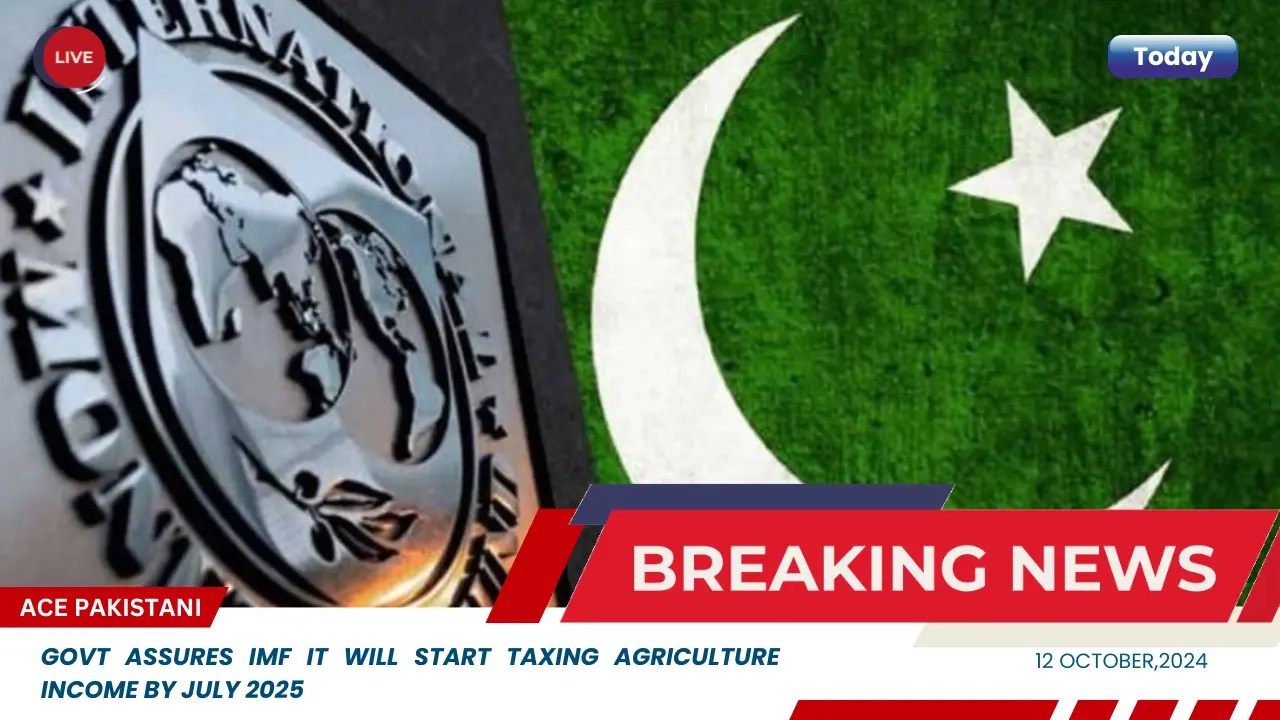Taxing Agriculture Income By July 2025:
The provincial government has promised the IMF that provinces will start collecting Agriculture Income Tax (AIT) by July, 2025. At the same time it will be approved with a 5 percent increase of the federal excise duty (FED) on fertilizer and new 5 FED percentage on pesticide in the following 2025-26 fiscal budget.
In the recently released IMF staff report on the EFF, four provinces have committed to modify their agriculture income tax regime. These systems will by October 2024 conform to federal personal income tax rules to small farmers and to the corporate income tax rules governing commercial agriculture provided that there is enabling legislation to that effect.
As from January 1, 2025, each province will step up to the new aligned tax regime and commence levying agricultural income tax. Collection tax on agricultural income accruing of the second half of the year 2024-25 will start from the financial year July 2025. For the purpose of assistance to the provinces in introduction and evaluation of this tax, the Federal Board of Revenue (FBR) is going to extend its technical support. This alignment seeks to bring fairness in taxing of agricultural income since the later should be treated like any other income.
Besides, the provinces have committed to changing the structure of the services GST regime from a positive list to a negative list in the 2025-26 fiscal year. This shall be an attempt at closing loopholes which allow firms to avoid paying taxes and expanding the tax base through extending taxation to all services except those that are excluded from the tax net.
The report also notes that to enhance the FBR’s capacity to support provincial tax revenues, it will endeavour to enhance the flow of information with Provincial Revenue Divisions.
The planned provincial tax reforms include two main components: first, the full synchronisation of AIT regimes with federal personal and corporate income tax systems by October 2024 with an implementation of the new system at 01.01.2025 and collection at 01.07.2025. Second, changing of the composition of GST on services from a Positive list to a Negative list will be effected from 2025-26.
Reforms in the taxi policy area will revolve round a simpler structure of taxation, increasing the coverage of taxes, and increasing the fairness of the system. Some of them are withdrawal of exemptions and preferences like shifting of the products at 5 percent GST to a new slab of 10 percent by FY 2026 and attempts to turn the GST into a multi-stage VAT.
In the sideline of PIT, there will be changes in income tax system through removal of tax credits and deductions making it fairer Income Tax Zone; Also, the special tax incentive for exporters and construction sectors will also be eliminated. New exemptions will be subjected to cost-benefit analysis first before approval could be granted.
Other taxes are to maintain the uniform taxation for all kinds of incomes and implement the uniform turnover registration point to be applied to the income taxation and GST for all turnovers.
The authorities are keen on eliminating the 3.5 % of GDP compliance deficit specifically observed in retail (1.1 % of GDP), transport (0.7 % of GDP) and real estate (0.2 % of GDP) industries.
Key initiatives include:
Achieving 100% of compliance risk management framework in large cities (Islamadn, Karachi, Lahore) through third party data and cross check along with conducting data analytics by December 2024.
The program of compliance improvement (PCIP) pursuing the objective of increasing the number of taxpayers among professionals and SMEs should be continued. Monitoring of the performance will be based on a quantitative performance criterion (QPC) derived from new filers in the tax database generated through the CIP.
Extending Tajir Doost program to 36 other cities and the implementation is being facilitate through the use of Information Technology.
Issuing electronic bills and enhancing the trace and track system so that smuggling and faker products should not enter the country.
To build the capacity of improving tax policy and its legislation, the government will create a Tax Policy Office within the Ministry of Finance. This office will be specialised in tax policy research, which means relieving the FBR from the responsibility of density research.
